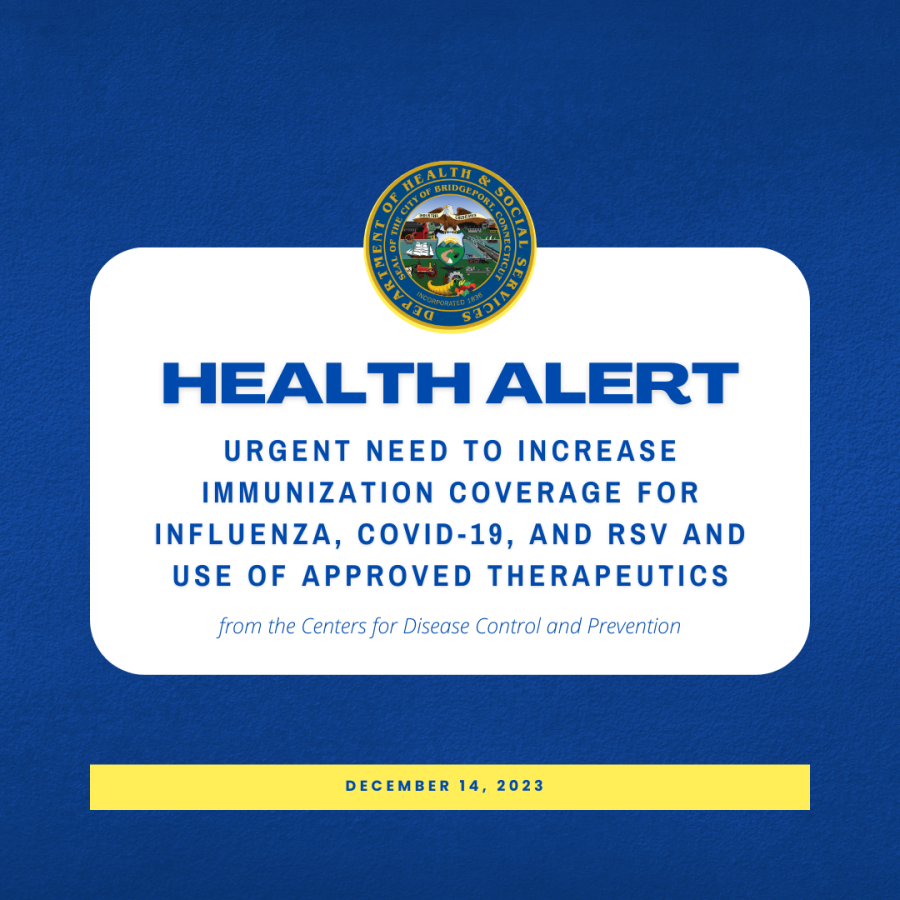CDC Health Alert: Urgent Need to Increase Immunization Coverage for Influenza, COVID-19, and RSV and Use of Authorized/Approved Therapeutics in the Setting of Increased Respiratory Disease Activity During the 2023 – 2024 Winter Season
December 15, 2023
Summary
Recent reports from various countries highlight an upsurge in respiratory diseases. The CDC is actively monitoring the escalation of respiratory illnesses in the United States, caused by several pathogens like influenza viruses, SARS-CoV-2, and RSV. They're using various indicators such as lab tests, ER visits, wastewater analysis, and hospitalizations to track this. Presently, the most intense respiratory disease activity is happening in the southern part of the country, but it's starting to increase in the northern states too.
Over the last month, hospitalizations for various age groups shot up significantly: 200% for influenza, 51% for COVID-19, and 60% for RSV. By December 1, 2023, there was a rising trend in pediatric ER visits due to multiple causes of pneumonia, starting from September, although it's similar to previous respiratory activity seen in the fall and winter. So far in the 2023–2024 season, there have been 12 reported deaths of children due to the flu. Between September 1 and December 10, 2023, the CDC got 30 reports of a rare complication called MIS-C, usually occurring a month after a person has had COVID-19. This increase happened between August 6 and November 9, 2023, compared to previous months. High levels of RSV activity are also prevalent across many parts of the United States.
Influenza, COVID-19, and RSV can lead to severe illness, particularly in those who haven't been vaccinated. Babies, older adults, pregnant individuals, and those with specific underlying medical conditions are at higher risk of severe illness from COVID-19 and the flu. Babies and older adults face the greatest risk from severe RSV sickness—it's the top cause of infants ending up in hospitals in the United States. This increase in hospitalizations for respiratory viruses in multiple age groups indicates an urgent need to increase immunization coverage and use of approved therapies to prevent transmission and reduce severe illness.
Preventing Respiratory Viruses
You can take steps to prevent the spread of respiratory viruses such as influenza, COVID-19, and RSV. If you have symptoms, you should:
- Cover your coughs and sneezes with a tissue or your shirt sleeve, not your hands
- Wash your hands often with soap and water for at least 20 seconds
- Avoid close contact with others, such as kissing, shaking hands, and sharing cups and eating utensils
- Clean frequently touched surfaces such as doorknobs and mobile devices
- If you are sick, stay home for at least 24 hours after the fever is gone (except to get medical care or other necessities) without fever-reducing medication
- Take antiviral drugs if your doctor prescribes them
More Information
Full CDC Health Alert
Respiratory Virus Information
- CDC - Respiratory Virus Activity Levels
- Bridgeport Influenza Epidemiology Reports
- CDC - COVID-19 Information
- CDC - Influenza Information
- CDC- RSV Information
Vaccine Information
Health & Social Services
News Article
Public Health

